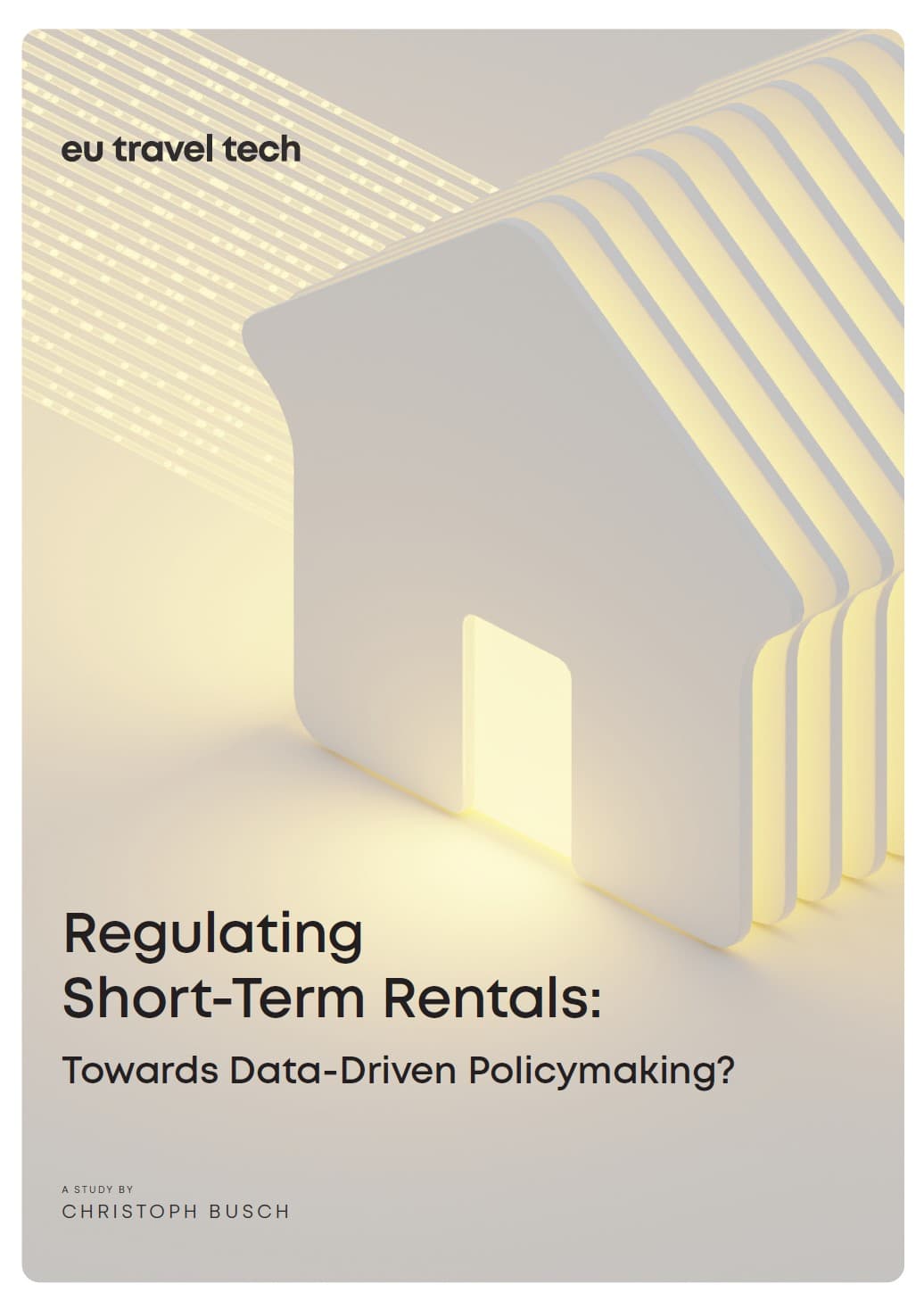Regulating Short-Term Rentals: Towards Data-Driven Policymaking?

Study funded by eu travel tech and carried out by Professor of Law Christoph Busch analyses local market restrictions on STR services across the EU. It concludes that the availability of STR data will likely drive local policymaking towards a more targeted and evidence-based approach.
Ahead of the adoption at EU level of the Regulation on-short-term rentals (STRs), today, eu travel tech releases the study “Regulating Short-Term Rentals: Towards Data-Driven Policymaking?”. The study sheds light on the different approaches taken by Member States to regulate STRs and answers questions related to these measures’ proportionality and compatibility with EU law. Further, it anticipates that the STR data collected following the application of the new EU Regulation will lead some Member States to reconsider their approach to STRs in favour of more targeted and evidence-based policies.
STRs represent 25% of the total supply of tourist accommodation in the EU. The benefits and challenges that these types of accommodations bring have been extensively discussed in recent years. The study analyses market access restrictions imposed on STRs services at the national, regional and local level in response to the emerging challenges: from outright bans to quotas and limits to the number of nightly stays allowed per STR. The picture is one of a myriad of different requirements emerging across the EU and highly fragmented approaches when it comes to regulating the STR tourism economy.
The local regulation of STR activity is underpinned by key EU principles. The EU Services Directive, which seeks to facilitate the freedom of establishment for service providers and the free movement of services in the EU, protects STR providers against discriminatory and disproportionate market access restrictions. However, as the Services Directive is a horizontal instrument, which applies across a broad range of different sectors, it does not provide any specific rules tailored to STR activities.
As the study highlights, the CJEU Cali Apartments ruling has contributed to clarifying some legal questions regarding the regulation of STR providers and the application of the Services Directive to the STR sector. In this regard, a total ban on STRs can only be seen as a justifiable measure in very exceptional circumstances. Totals bans have been introduced for example in Nice, Amsterdam and Barcelona and have in several cases been declared illegal by courts. “If granular data on STR activity is available under the planned STR Regulation, a blanket ban of all STRs across several districts can no longer be considered,” says the study. With regard to quantitative restrictions, the study highlights that they can only be a measure of last resort. Quotas, for instance, should only be applied if there is clear evidence that other measures have failed to protect public interest objectives.
The study stresses that the requirements for justifying market access restrictions will increase once the planned STR Regulation takes effect. “Public authorities will have to implement a more data-driven approach to STR regulation that is based on up-to-date market data and thus more responsive to the dynamic development of the STR market,” concludes the study.
The study is the result of independent research funded by eu travel tech and conducted by Professor Christoph Busch, Professor of Law at the University of Osnabrück and Affiliated Fellow at the Yale Information Society Project.



